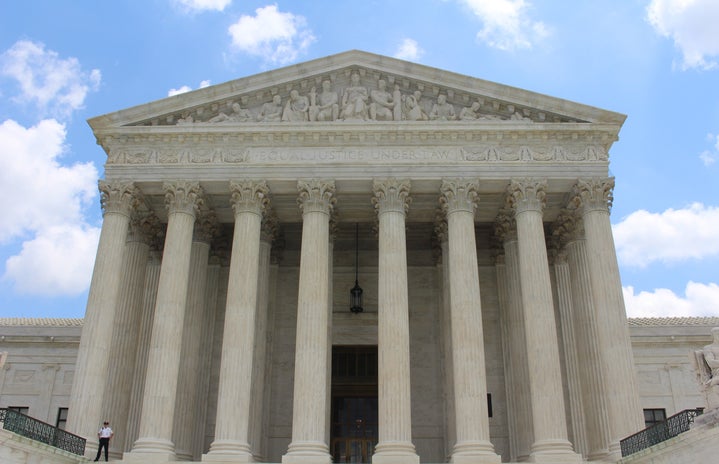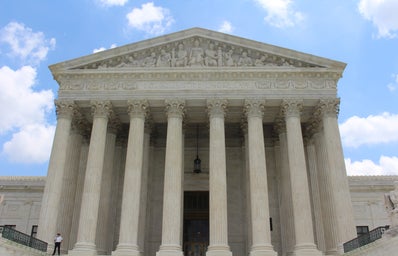Supreme Court Justice and long-time champion of women’s rights, Ruth Bader Ginsburg has died. Now, in the aftermath of her death, America is gripped with fear.
Faced with the knowledge that her death would mean another Trump appointee on the court, RBG remained on the court even as she battled cancer; her dying wish was that the Senate would choose to wait until after the election to appoint her successor.
Her wish was ignored.
Now, with Senate Majority Leader Mitch McConnell pushing ahead with the nomination of a new judge – contradictory to his previous stance which allowed a nomination to be held off for 11 months before the 2016 election – the Trump administration is racing to fill Ginsburg’s seat with a conservative justice.
This decision will mean a 6-3 conservative majority on the courts, putting abortion rights, LGBTQ rights, and many more issues in danger. The impending changes are leading many people to question the validity of the Supreme Court system as it stands.
If one person dying at the wrong time could cause this many lasting issues for the rights of Americans, isn’t there something we could be doing better?
Under the current system, justices are nominated by the sitting president then approved by the Senate Judiciary committee: once approved, they have a life sentence. Justices remain on the court until one of three things happens: they die, they retire, or they are impeached.
This rule, intended to keep political influence out of the courts, has proven recently to do the very opposite.
Justices, faced with pressure from partisan efforts, have the opportunity to strategically retire when they know they would be replaced by a president whose ideas align with theirs, guaranteeing that their successor would continue to represent the interest of the former justice’s political leanings. Others, like Ginsburg, remain on the court through old age and illness for fear of what will happen if they step down.
Ginsburg’s death has provided some much-needed perspective on the matter of the Supreme Court, and it is becoming clear that some form of reform is long overdue.
One proposed change would establish a term limit for justices, many having argued that an 18-year limit would pose as a way to limit the length of time justices can serve without creating the kind of chaos that a 4 or 8 year term might cause.
Limiting terms could pose to do a few important things; first, and most obvious, it would limit the amount of power that each justice is given by ensuring they cannot serve for longer than they are able. Second, it would take away the ambiguity in presidential elections.
With the system currently in place, the public must elect a president with the knowledge that they may need to at some point appoint a new justice, but without really knowing if, when, or how many times that might happen. If term limits are applied, we can be aware of vacancies ahead of time, take them into account during elections.
Also in discussion is expanding the courts – increasing the number of judges on the bench to create a less partisan setting, though many leading Democrats have dismissed the idea.
One thing is clear: the current system of Supreme Court nominees is unstable and leaving the rights of Americans up to partisan decision-making. Whatever the change may be, we cannot keep the system how it is.



